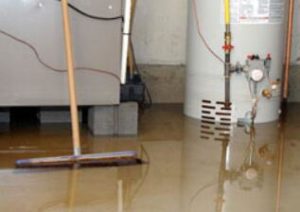Whether your water heater is powered by gas or electricity, leaks are inevitable at some point. Leaks may be as a result of general malfunctioning of your water heating unit. Let’s be honest, taking risks might be a good thing but we need to assess our risks altogether. In this case, I want you to help me answer this question. Is it safe for you to take a shower if your water heating is leaking? Answering yes or no depends on the extent of the leak. If the leak is minor, then I see no problem for you taking a shower. On the other hand, when the leak is substantial, you might consider reviewing your showering options.
Leaks can occur on various units of a water heater. From supply pipes, nozzles, or drain valve, you should be in a position to point out the exact points. If these areas are not critical, you can comfortably take your shower. Make sure you countercheck all these areas to assess the extent of the leaks. Serious leaking is a sure pointer to replacing some parts of the water heating unit. I could use two or three days of shower time before embarking on serious problem finding expedition.

Key Points of Taking or Not Taking a Shower if Your Water Heater is Leaking
Taking a shower with a leaking water heater will depend on a number of things. You should consider the extent of a leaking water heater. I would say, if a leak is serious, you might want to call your plumber to have it fixed. Showering with a water heater spotting some leaks is not a problem. A problem occurs with regards to specific areas where these leaks occur. If you decide to take a shower check specific units of a water heater for any serious leaks.
A leaking drain valve cannot prevent you from having your hot shower.
Instead, it should be a pointer to a fault that you might want to fix sooner. Considering the location of your heater from your bathroom, this shouldn’t be reason enough to postpone your shower. Also, it will depend on the extent of the leaking drainage valve. If it is so serious, you will be required to have it replaced.
If you see a leaking temperature or pressure gauge, just check how serious it is.

This is because I don’t find a minor leak in this area preventing you from having to shower. Not this. Kindly enjoy your shower and make sure you get is fixed sooner. With this in mind, you should not be alarmed by a small leak in this area of your water heater. Choose to enjoy your hot shower and purpose to call your plumber to take a look at it.
I wouldn’t like it for you. Loose fittings can cause major leaks. All water delivery pipes should be fastened properly to prevent water leaks. You can take your shower even with delivery pipes spotting some leaks. You need to assess the extent of the leaking pipes and assess the damage extent. All in all, you can enjoy your shower even if your water heater is leaking. You just have to check whether the leaking is serious and contact your plumber to have it rectified.
You Need to Understand Some of the Key Reasons Why Leaking May Occur
Below is a list of things that can lead to the leaking of your water tank. Loose or faulty drain valves. This may also be as a result of the drain valves being broken. When a water heater leaks from the bottom, then this is where you need to concentrate.
Corrosive forces.
A water heating tank comes with a node that offers sacrificial protection. This simply means, it prevents your tank from corrosive forces. If this node is fully “eaten” by rust, parts of the metal tank is exposed to corrosion. These cracks may eventually lead to serious leaks which can cause your tank to break down completely. In case of these leaks, you should consider replacing the water heater.
Loose fittings.
Some of your pipes or connections might be loose. This may be due to improper fastening or continued use with no service. On the other hand, faulty temperature and pressure valve can lead to serious leaking of your water heater.
Steps to Take When Water Leaks Occur
We are a guilty lot. You always feel guilty taking a shower and knowing that your water heater has some leaks. Below are the steps you can take when you are ready to work towards repairing those leaks.
1. Switching off the power supply to the water heater.
A water leak can cause electric short-circuits or tripping of the circuits. For a gas water heater, work with your thermostat to ensure it is completely off. If using an electric water heater, switch off the power plug on the breaker panel.
2. Lock the feeder line.
The feeder line is the cold-water line channeling cold water to the tank. Keep this pipe tightly shut by ensuring the valve closes well.
Consider safely draining the tank.
This is one of the easiest things to do as a maintenance check. It should not be hard to do it. Make sure you have the right equipment to work with.
Draining the water tank.
Make sure you switch off the power supply to the tank. If using a gas water heater, turn the pilot knob to off. In case of electric supply, make sure to switch off your circuit breaker. With a garden hose in place, fix it to the tank’s drain valve. Ensure the hose is properly set to release the water. After checking whether it is tightly sealed off, open the drain valve. Water will be drained from your tank giving you the piece to rectify leaking areas.
While draining the water, be on the lookout to open the tank fully. Opening the tank cuts down on the vacuum effect allowing water to be fully released
3. The last step is contacting your plumber.
You can help him fix the leaks by simply pointing out the specific points with these faults. Water leaks might cost you heavily. You might end up incurring repair costs or having to fully replace the water heater. Nonetheless, never postpone routine maintenance checks as these save you from leaks or other faults.
Using a leaking water heater can be a double-edged sword. You can find it to be less risky in the short run but tremendous in the long run. This means you should never ignore those leaks. As highlighted, you can take control by examining specific units.
Maybe, you can contact your plumber to do the assessment and fix the problems resulting in these leaks. Either way, be sure to spend a lot more if you allow these leaks to persist. After all these repairs, you and your family can enjoy using your water heater for longer periods of up to 20 years. Leaking water heaters should never be tolerated. You need to prevent losses or disasters by taking charge.


